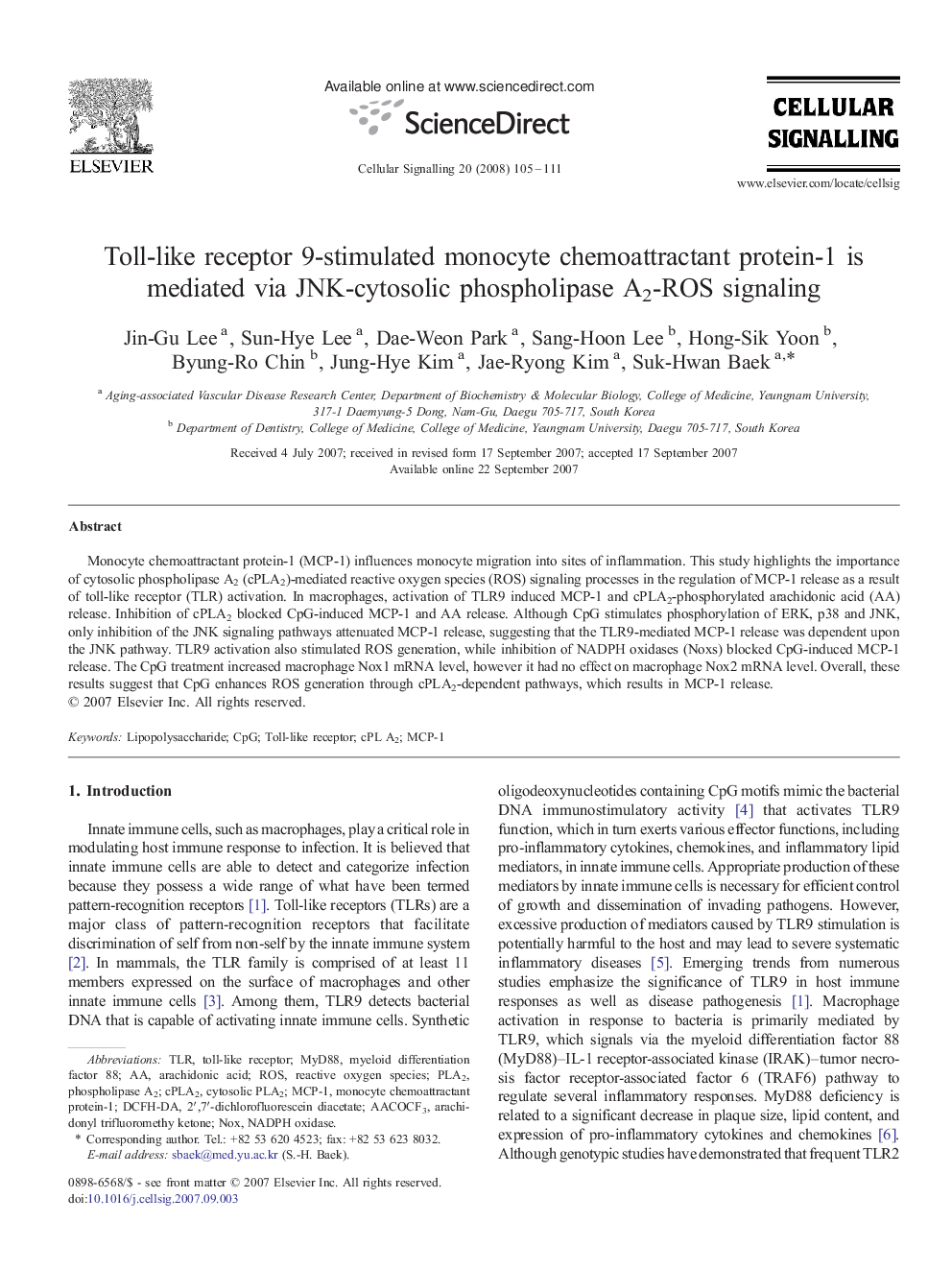| Article ID | Journal | Published Year | Pages | File Type |
|---|---|---|---|---|
| 1964498 | Cellular Signalling | 2008 | 7 Pages |
Monocyte chemoattractant protein-1 (MCP-1) influences monocyte migration into sites of inflammation. This study highlights the importance of cytosolic phospholipase A2 (cPLA2)-mediated reactive oxygen species (ROS) signaling processes in the regulation of MCP-1 release as a result of toll-like receptor (TLR) activation. In macrophages, activation of TLR9 induced MCP-1 and cPLA2-phosphorylated arachidonic acid (AA) release. Inhibition of cPLA2 blocked CpG-induced MCP-1 and AA release. Although CpG stimulates phosphorylation of ERK, p38 and JNK, only inhibition of the JNK signaling pathways attenuated MCP-1 release, suggesting that the TLR9-mediated MCP-1 release was dependent upon the JNK pathway. TLR9 activation also stimulated ROS generation, while inhibition of NADPH oxidases (Noxs) blocked CpG-induced MCP-1 release. The CpG treatment increased macrophage Nox1 mRNA level, however it had no effect on macrophage Nox2 mRNA level. Overall, these results suggest that CpG enhances ROS generation through cPLA2-dependent pathways, which results in MCP-1 release.
